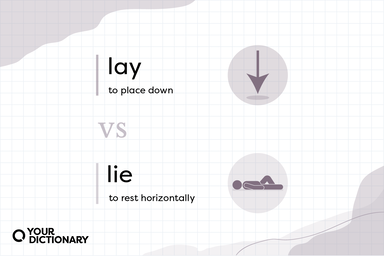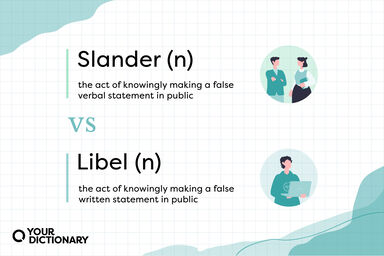Lie Definition
The Long Island Expressway, I-495.
- To keep oneself or one's plans hidden.
- To bide one's time but remain ready for action.
- To lie outrageously or brazenly.
- to put forth considerably less than one's best efforts
- to be in confinement for childbirth
Idioms, Phrasal Verbs Related to Lie
Origin of Lie
-
From Middle English lien (“to lie, tell a falsehood"), from Old English lÄ“ogan (“to lie"), from Proto-Germanic *leuganÄ… (“to lie"), from Proto-Indo-European *lewgÊ°- (“to lie, swear, bemoan"). Cognate with West Frisian lige (“to lie"), Low German legen, lögen, Dutch liegen (“to lie"), German lügen (“to lie"), Norwegian ljuge/lyge (“to lie"), Danish lyve (“to lie"), Swedish ljuga (“to lie"), and more distantly with Bulgarian лъжа (lǎža, “to lie"), Russian лгать (lgatʹ, “to lie").
From Wiktionary
-
From Middle English lien, liggen, from Old English licgan, from Proto-Germanic *ligjanÄ…, from Proto-Indo-European *legÊ°-. Cognate with West Frisian lizze, Dutch liggen, German liegen, Danish ligge, Swedish ligga, Gothic 𐌻𐌹𐌲𐌰𐌽 (ligan); and with Latin lectus (“bed"), Irish luighe, Russian лежать (ležatʹ), Albanian lagje (“inhabited area, neighbourhood").
From Wiktionary
-
From Middle English lie, from Old English lyÄ¡e (“lie, falsehood"), from Proto-Germanic *lugiz (“lie, falsehood"), from Proto-Indo-European *leugh- (“to tell lies, swear, complain"), *lewgÊ°-. Cognate with Old Saxon luggi (“a lie"), Old High German lugÄ« (German Lüge, “a lie"), Danish løgn (“a lie"), Bulgarian лъжа (lǎža, “а lie"),
From Wiktionary
-
Middle English lien from Old English licgan legh- in Indo-European roots
From American Heritage Dictionary of the English Language, 5th Edition
-
As a noun for position, the noun has the same etymology above as the verb.
From Wiktionary
-
Middle English from Old English lyge leugh- in Indo-European roots
From American Heritage Dictionary of the English Language, 5th Edition
Find Similar Words
Find similar words to lie using the buttons below.





